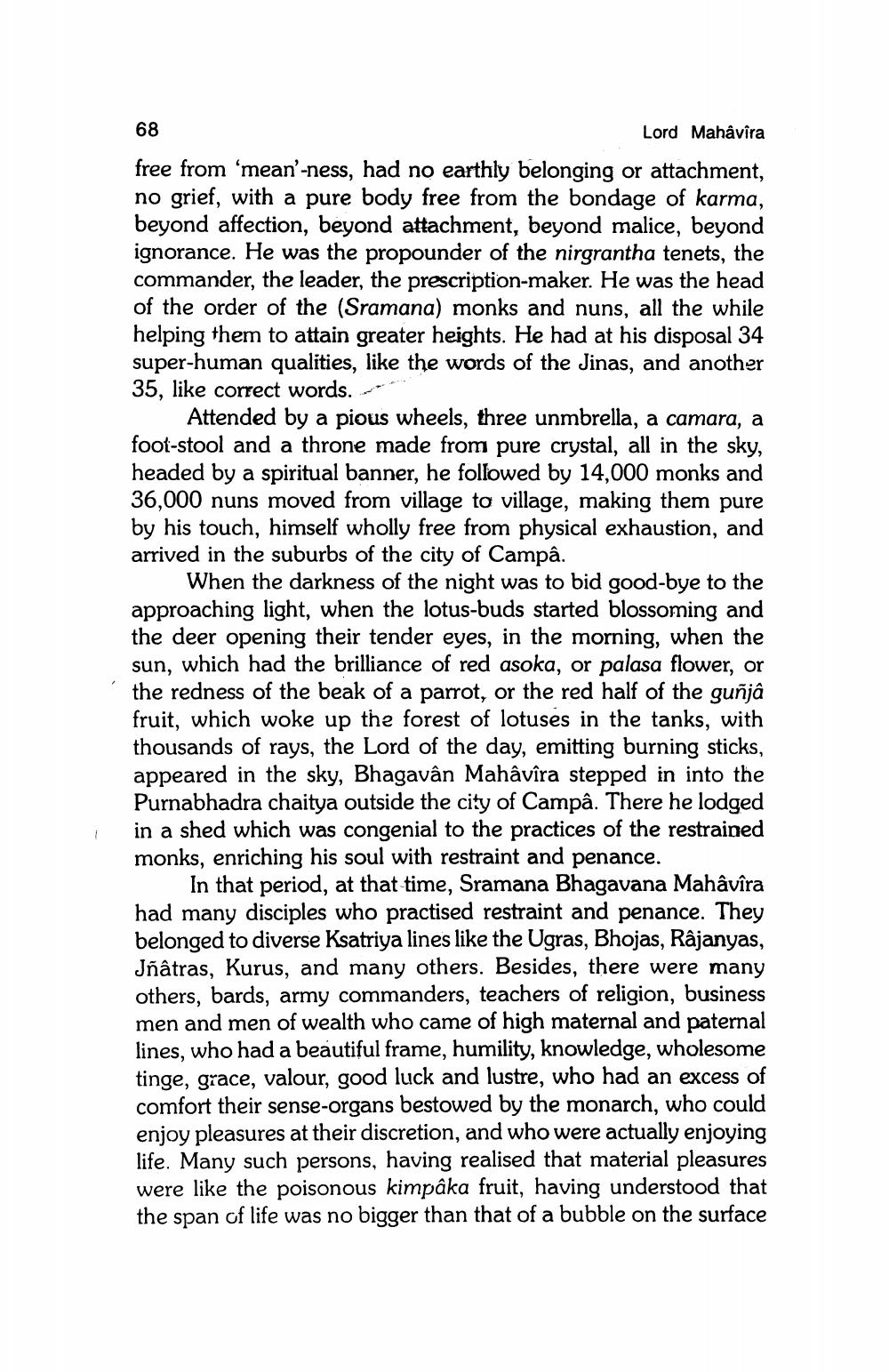________________
68
Lord Mahavira free from ‘mean’-ness, had no earthly belonging or attachment, no grief, with a pure body free from the bondage of karma, beyond affection, beyond attachment, beyond malice, beyond ignorance. He was the propounder of the nirgrantha tenets, the commander, the leader, the prescription-maker. He was the head of the order of the (Sramana) monks and nuns, all the while helping them to attain greater heights. He had at his disposal 34 super-human qualities, like the words of the Jinas, and another 35, like correct words.
Attended by a pious wheels, three unmbrella, a camara, a foot-stool and a throne made from pure crystal, all in the sky, headed by a spiritual banner, he followed by 14,000 monks and 36,000 nuns moved from village to village, making them pure by his touch, himself wholly free from physical exhaustion, and arrived in the suburbs of the city of Campâ.
When the darkness of the night was to bid good-bye to the approaching light, when the lotus-buds started blossoming and the deer opening their tender eyes, in the morning, when the sun, which had the brilliance of red asoka, or palasa flower, or the redness of the beak of a parrot, or the red half of the guñjā fruit, which woke up the forest of lotuses in the tanks, with thousands of rays, the Lord of the day, emitting burning sticks, appeared in the sky, Bhagavân Mahâvîra stepped in into the Purnabhadra chaitya outside the city of Campâ. There he lodged in a shed which was congenial to the practices of the restrained monks, enriching his soul with restraint and penance.
In that period, at that time, Sramana Bhagavana Mahâvîra had many disciples who practised restraint and penance. They belonged to diverse Ksatriya lines like the Ugras, Bhojas, Rajanyas, Jñâtras, Kurus, and many others. Besides, there were many others, bards, army commanders, teachers of religion, business men and men of wealth who came of high maternal and paternal lines, who had a beautiful frame, humility, knowledge, wholesome tinge, grace, valour, good luck and lustre, who had an excess of comfort their sense-organs bestowed by the monarch, who could enjoy pleasures at their discretion, and who were actually enjoying life. Many such persons, having realised that material pleasures were like the poisonous kimpâka fruit, having understood that the span of life was no bigger than that of a bubble on the surface




